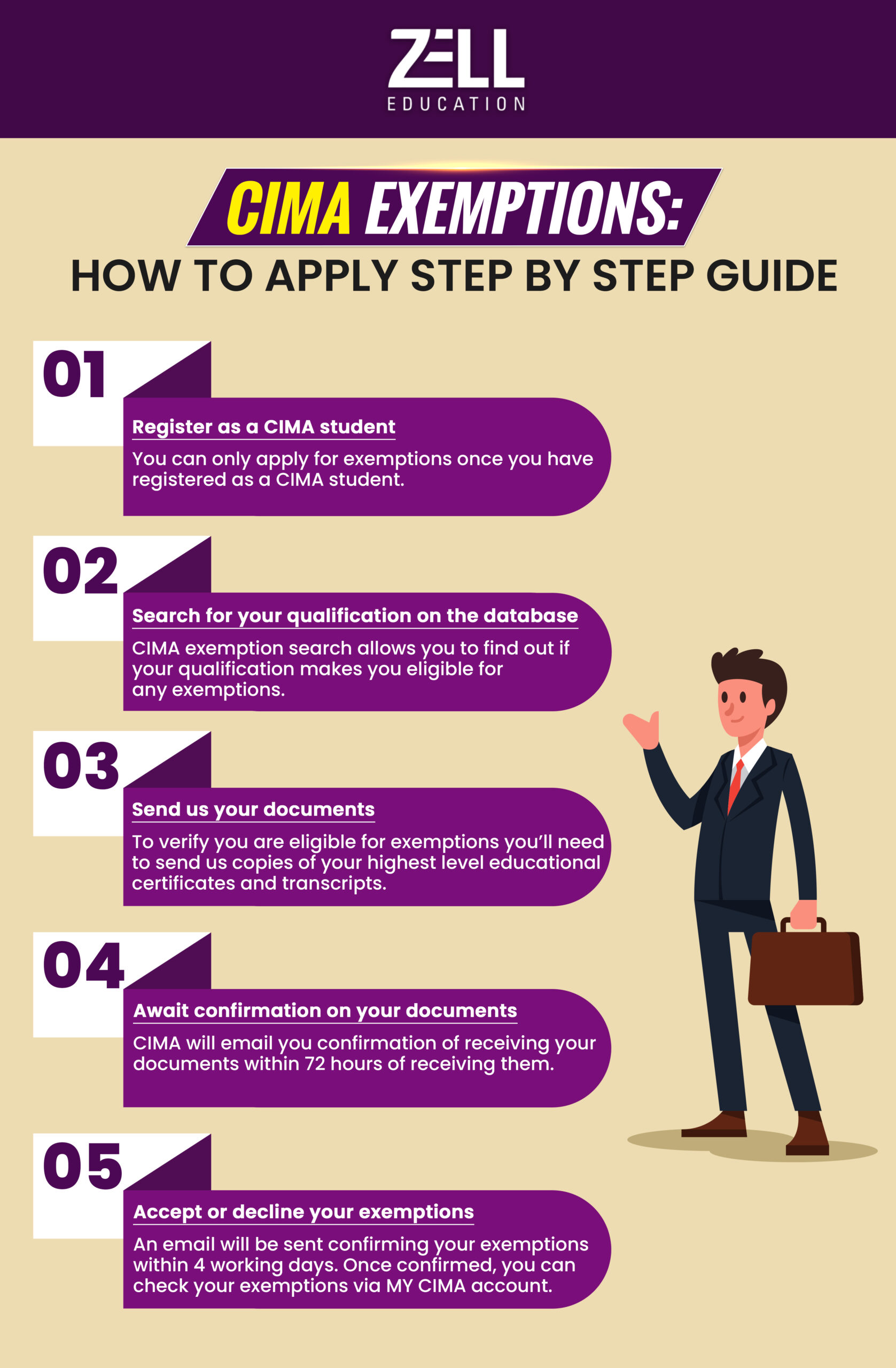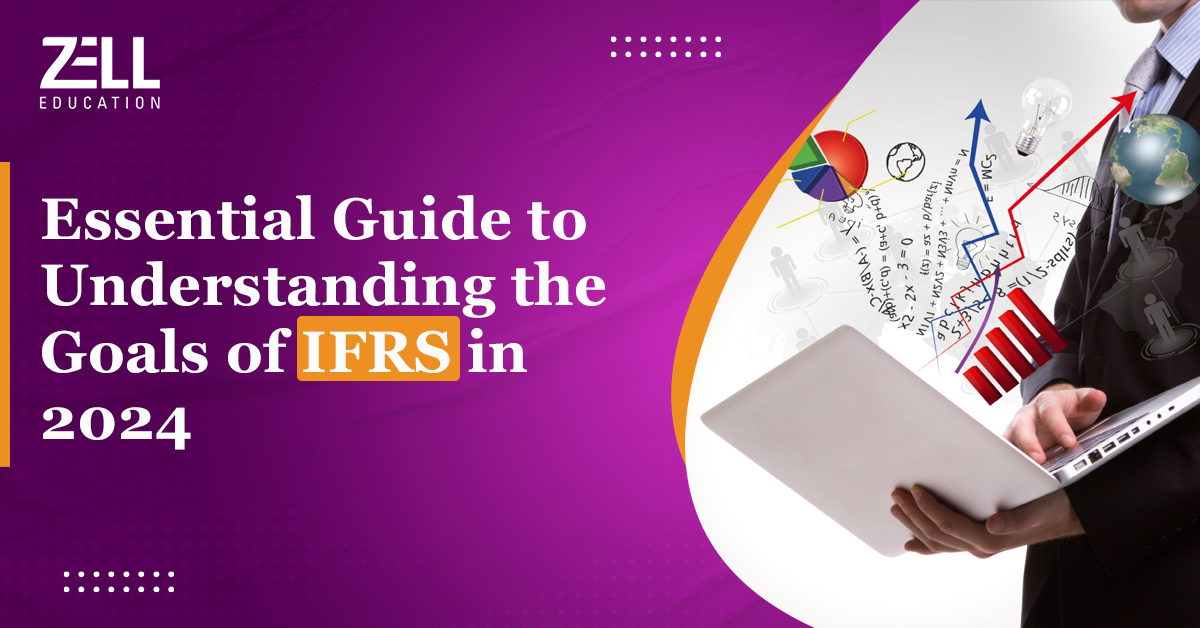CIMA Exemptions: Everything You Need to Know
Are you preparing for the prestigious CIMA examinations? What if you can skip a few CIMA exams if you already have some specific degrees or qualifications?
Sounds too good to be true, right?
Under the CIMA exemptions, you can get some exams out of your way if you have the relevant qualifications. You will get a concession from taking specific CIMA examinations when you apply for and qualify for an exemption. This is a relief for most applicants, considering the demanding nature of the CIMA certification exams
Read on to learn more about CIMA exemptions, including why you need an exemption, CIMA exemption fees and regulations.
Why should you apply for an exemption?
If you are eligible for CIMA exemptions, you should opt for them for the following reasons:
- Exemptions will help you finish your course earlier than usual. This way, you can give a jump-start to your career and have the edge over your peers.
- As a student preparing for CIMA, you will have a tight schedule. Getting a few exams out of your way will save time, effort and money.
- CIMA values all your hard work to achieve a degree. Exemptions are a token of recognition, which can boost your overall morale.
CIMA Exemptions for graduation
A candidate can be exempt from taking a few CIMA exams if they have a Bachelor’s degree in Accounting, Finance, Management, Economics, or other relevant fields.
The following table summarises the exemptions corresponding to the graduation degrees:
| Degree | Exemptions |
| 1. Accounting | All certificate level exams |
| 2. Business General | BA1 Fundamentals of Business Economics
BA4 Fundamentals of Ethics, Corporate Governance, and Business Law |
| 3. Finance | BA1 Fundamentals of Business Economics
BA2 Fundamentals of Management Accounting BA3 Fundamentals of Finance Accounting |
| 4. Economics | BA1 Fundamentals of Business Economics |
| 5. Management | BA1 Fundamentals of Business Economics |
| 6. Commerce | All certificate level exams |
| 7. Business Studies/ Administration | All certificate level exams |
CIMA Exemptions after MBA
A Master’s or MBA in Accounting qualifies you for the CIMA Gateway Exam. Popularly known as the Management Level Case Study Exam, this is a CIMA exemption that directly takes you to the strategic level exams.
Though the CIMA exemptions after MBA looks quite tempting as you can avoid giving 11 exam papers, the pass percentage is only 18%. To sit for the CIMA Gateway Exam, you must have core knowledge of the topics up to the Management Case Study Level.
CIMA Exemptions for ACCA
If you have passed all 14 exams in ACCA, a course whose core consists of auditing, taxation, and accounting, then you can opt for CIMA exemptions in the following areas:
Three Management Level Exams
Operational Level Integrated Case Study Exam
Three Operational Level Exams
Four Certificate Level Exams
CIMA exemptions for CA
CIMA exemptions for CA mainly depends on two factors: the kind of CA qualification a candidate has and the number of years of work experience they possess.
Take this example for a better understanding. A candidate with a level 5 certificate in Accounting from SAICA and a SAICA member with more than three years of experience will qualify for different CIMA exemptions.
CIMA exemptions for CMA
The CMA certification solidifies a candidate’s expertise in strategic management and financial accounting, which CIMA recognises and exempts applicants from taking some exams.
To avail the exemptions, you must check the CIMA database, which states the year of qualification and the modules required for exemptions. However, CIMA exemptions for CMA USA and CIMA exemptions for CMA India may vary, as one has global recognition while the other is only recognised in India.
CIMA exemptions for AAT
Many candidates go for the AAT certification to hone their accounting skills. Some even pursue the CIMA certification after AAT for better job prospects. Though it may seem like a long route, it is worth a try.
You can get exemptions from a few CIMA Certificate Level exams if you already have a Level 2 or Level 3 diploma in AAT. But a candidate with an AAT Level 4: Technician/Diploma can bypass all the exams under the CIMA Certificate Level.
CIMA Exemptions for CFO
If you are a senior management professional like a CFO or CEO with ten years of business and finance experience, you can directly take the Strategic Case Study Exam to achieve the CIMA certification. This exemption falls under CIMA’s CFO programme.
CIMA Exemption fees
You need not pay any CIMA exemption fees if you have registered as a CIMA student.
Checking eligibility for exemption
Follow these steps to determine whether you are eligible for CIMA exemptions:
First, register as a CIMA student. Without registration, you can neither check eligibility nor apply for exemptions.
Search the CIMA database to find your qualification and check whether it aligns with CIMA exemptions.
For verification, send copies of your transcripts and the highest level of your educational qualification to the provided mail address on the CIMA website.
You will receive confirmation from CIMA via email within 72 hours. Resend the documents if you do not get a confirmation.
You will know your exemption status within 10-20 working days. If successful, accept the request within four days.
But what if you cannot find your qualification in the CIMA database? You need not worry if your qualification is relevant to the course and equivalent to a UK certificate of higher education. In that case, send the necessary documents to CIMA to determine whether you are eligible for exemptions.
Wrapping up
Check the CIMA database thoroughly, as many other degrees, in addition to those mentioned in the blog, qualify for exemptions. Remember, you can only apply for exemptions before taking the relevant exam, and your qualifications must not be older than seven years.
Thinking of pursuing a CMA before opting for CIMA? Check out the CMA course Zell Education offers. With our personalised study plan, optimal batch sizes, 1:1 student mentorship, and 100% placement assistance, this course is your stepping stone to success.
FAQ
What exemptions do I have for CIMA?
CIMA allows exemptions if you have a relevant degree that aligns with the topics taught in the CIMA certification course. With these exemptions, you can skip some of the CIMA exams.
How many papers of CIMA are exempted after MBA?
If you have an MBA, you can take the Master’s Gateway route, which offers an exemption from 11 CIMA papers.
How many exemptions for CIMA after ACCA?
A candidate with an ACCA certificate can get 11 exam exemptions and directly opt for the Strategic Level CIMA exam.










